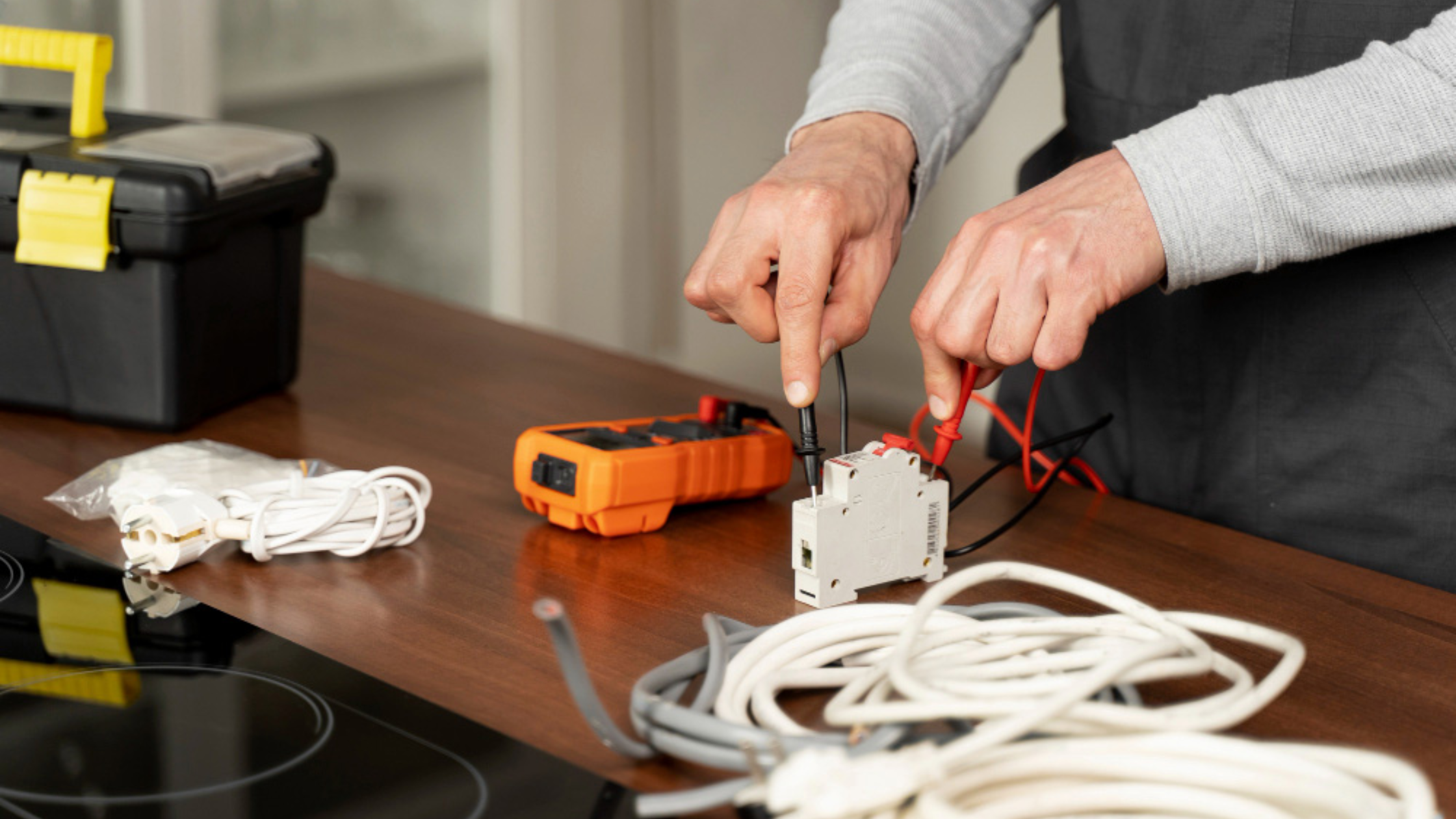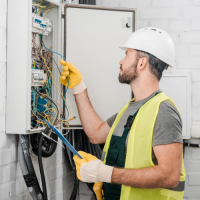Protect Your Home from These Common Home Electrical Issues

Strong 8k brings an ultra-HD IPTV experience to your living room and your pocket.
Introduction:
Electricity powers nearly everything we do—from checking your phone in the morning to turning off the lights at night. For homeowners in North Alabama, where modern living depends on a constant flow of power, a safe and reliable electrical system is essential.
Whether it is brewing coffee, charging devices, or running your HVAC, none of it would be possible without electricity. But with all these conveniences comes responsibility. The more we depend on power, the more we need to be aware of the risks and common home electrical problems that come with it.
That’s where residential electrical services play a key role. Whether it's routine maintenance, emergency repairs, or a complete upgrade, these services ensure your home’s electrical system is safe, efficient, and up to modern standards.
Let’s take a closer look at the most common electrical problems homeowners face and how to protect your home from them.
Top 10 Common Electrical Problems Every Homeowner Faces
Faulty Wiring
Faulty wiring is one of the most dangerous issues you can face in a home. Over time, wiring can become frayed, corroded, or damaged—especially in older homes or those with poor installation practices.
Common warning signs include flickering lights, a burning smell near outlets, or circuit breakers that trip frequently.
If you notice discolored or warm outlets, that’s also a red flag. Ignoring these signs can lead to electrical fires, shocks, or damage to appliances. The safest course of action is to call an electrician for an inspection and necessary repairs.
Flickering Lights
While it might seem harmless, consistent flickering lights can be a sign of a much bigger problem.
This could be due to loose wires, overloaded circuits, or even voltage fluctuations in your electrical system. In some cases, it may indicate an issue with the fixture itself, but if multiple lights flicker throughout the house, it points to a broader electrical issue.
Don’t dismiss it as a minor nuisance.
Overloaded Circuits and Extension Cord Overuse
Using too many devices on one outlet or circuit is a common problem, especially in homes with limited power points. Many people turn to extension cords as a quick fix, but this only increases the risk of electrical fires.
Overloading a circuit means drawing more power than it's designed to handle, causing the wires to overheat.
This can trip your circuit breakers, damage your electronics, and put your home in danger. If you find yourself constantly relying on extension cords, it’s time to consider upgrading your home’s electrical system or adding new outlets.
High Electricity Bills Without Explanation
If your electricity bills are suddenly higher without any increase in usage, you might be dealing with an inefficient or damaged electrical setup.
Issues such as faulty wiring, outdated appliances, and phantom power (energy used by devices in standby mode) can quietly raise your power consumption.
Hidden leaks in your system or improper grounding can also waste electricity.
Outdated or Faulty Electrical Panels
An outdated electrical panel can be more than just a minor inconvenience. Panels that were installed decades ago weren’t designed to handle the modern load of today’s households.
With multiple appliances, home offices, and smart devices, these old systems can quickly become overwhelmed.
Signs of trouble include buzzing sounds, frequently tripping breakers, or a panel that gets warm to the touch. Upgrading your panel is essential to keep your home’s electrical system safe and running efficiently.
Loose Wires and Faulty Switches
Over time, loose wires can develop inside walls, outlets, or junction boxes due to regular wear and tear, poor installation, or even rodent activity. These loose connections can result in flickering lights, buzzing noises, or intermittent power issues.
Similarly, light switches that don’t work properly, feel warm, or emit sparks are also signs of trouble. These issues might seem small, but they can escalate quickly, increasing the risk of electrical shocks or fires.
Circuit Breakers That Trip Too Often
Circuit breakers are designed to protect your home by shutting off power when a circuit is overloaded or a fault is detected. However, if they’re tripping often, it’s not something to ignore.
It usually means your electrical system is being pushed beyond its limits. Common causes include too many high-powered appliances on one circuit, faulty wiring, or outdated panels.
Breakers that trip without clear cause may signal a dangerous short circuit or ground fault. This is when it’s essential to call a professional to evaluate the system, redistribute the load, or make upgrades as needed.
Electric Shocks from Outlets or Switches
Even a mild tingle or zap when touching a light switch or plugging something in is a serious warning. Electrical shocks can indicate a problem with the wiring, grounding, or internal damage to the outlet or switch.
This is especially dangerous if there are children or elderly individuals in the home. Continuing to use the affected outlets or switches increases the risk of fire and injury.
Light Bulbs Burning Out Frequently
If you find yourself replacing light bulbs more often than normal, your issue might not be the bulb—it could be the wiring. Frequent burnouts can be caused by a high voltage supply, poor wiring connections, or fixtures that are not compatible with the bulb type.
In some cases, the sockets may be worn out or corroded. Over time, these conditions can damage the fixture and become a fire hazard.
Dead Outlets or Switches That Don't Work
If you have outlets or light switches that no longer work, they may have burned out due to age, short circuits, or wiring faults. Sometimes, a circuit breaker may have tripped and not been reset properly, but in many cases, the issue lies deeper within the electrical wiring.
Dead outlets can disrupt your daily routine and may even point to more widespread electrical issues in your home.
Improperly Wired Outlets and Switches
Some outlets and switches are installed using a shortcut method called “back-stabbing,” where wires are pushed into a port at the back rather than secured with screws.
Over time, these connections can loosen, causing electricity to arc—producing intense heat that melts the outlet and insulation. This not only ruins the wiring but also increases the risk of electrical fires.
Improper Grounding
Grounding protects your home by directing stray electricity safely into the earth. Without it, power surges or faults may pass through appliances—or even people—while seeking a path to ground.
Proper grounding involves secure connections to both a water line and a ground rod. If either is missing or faulty, your home is at greater risk for electrical shocks or fires.
Call Trusted Residential Electrical Services in North Alabama Before It’s Too Late
Electrical problems might start small, but they can quickly turn into serious safety risks if left unchecked. That’s why it’s so important to have reliable residential electrical services on your side.
Look for residential electricians near me on the internet and make sure to choose someone licensed, experienced, and trusted in your area.
Don’t wait for an emergency—schedule an inspection or repair today and keep your home safe, efficient, and up to code.
Note: IndiBlogHub features both user-submitted and editorial content. We do not verify third-party contributions. Read our Disclaimer and Privacy Policyfor details.


